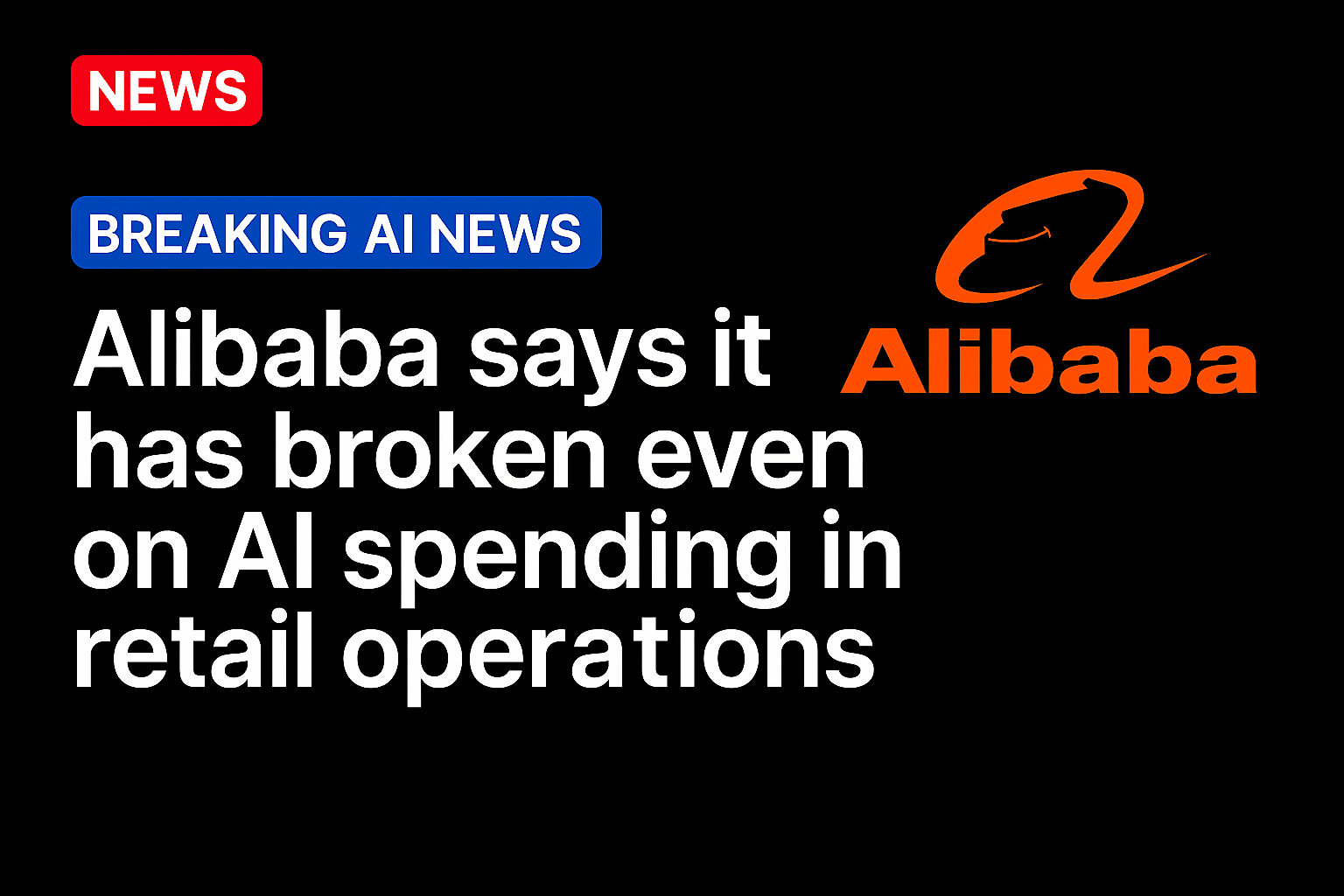
Alibaba Group said its artificial intelligence (AI) spending in core eCommerce operations is already breaking even, marking a rare point of measurable return in large-scale AI investment, according to a CNBC report.
The company said AI has boosted its return on advertising spend by 12% across Taobao and Tmall, citing gains from smarter ad matching, dynamic pricing, and personalized product recommendations. The results, executives said, reflect progress toward achieving self-sustaining profitability from AI in retail.
Alibaba’s broader plan calls for 380 billion yuan (about $53 billion) in investment over the next three years, focused on algorithms, data centers and AI-driven commerce infrastructure. The company previously detailed this commitment in internal presentations reported by PYMNTS, noting that AI is central to its next growth phase.
The announcement follows months of industry skepticism about whether AI spending could yield direct financial returns. Alibaba’s break-even milestone offers one of the first quantifiable examples from a global retailer that AI can produce operating gains, not just cost efficiencies. The company has not released detailed cost metrics, and some observers question whether break-even status can hold through seasonal demand swings. Alibaba said the benefits so far include improved user retention and more efficient ad allocation, but the sustainability of those gains will depend on broader consumer trends.
Alibaba’s efforts parallel how U.S. peers are embedding AI across retail functions. Walmart has begun piloting “AI super agents” to automate store operations and checkout, while also launching an AI-first shopping experience through ChatGPT that lets customers purchase products directly within chat.
PYMNTS reported that major U.S. and European chains are using AI to optimize inventory and demand forecasting, improving on-shelf availability and lowering logistics costs as supply chains remain tight and labor expenses rise. Target, for example, has invested in predictive analytics to better align merchandising with regional demand, while grocers and fashion brands are leveraging AI to adjust pricing dynamically in response to shifting consumer behavior.
Alibaba’s ongoing AI ramp-up, which PYMNTS reported is part of its effort to pursue artificial general intelligence (AGI) goals, underscores how major platforms are linking automation with core profitability metrics. As global retailers balance AI spending with financial discipline, Alibaba’s break-even milestone could reset how CFOs measure success. Since March, triple the number of enterprise CFOs report very positive ROI from gen AI, according to PYMNTS Intelligence.
Source: https://www.pymnts.com/

